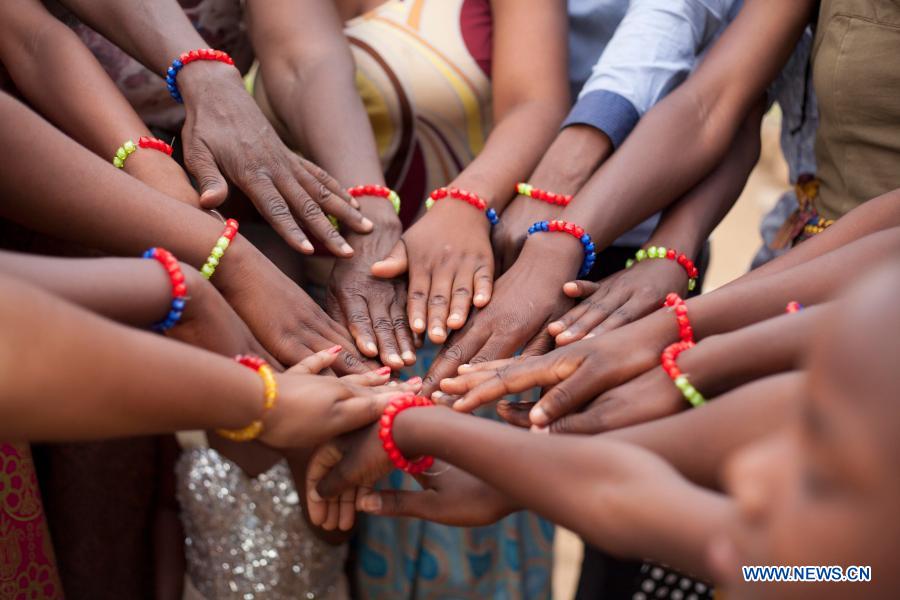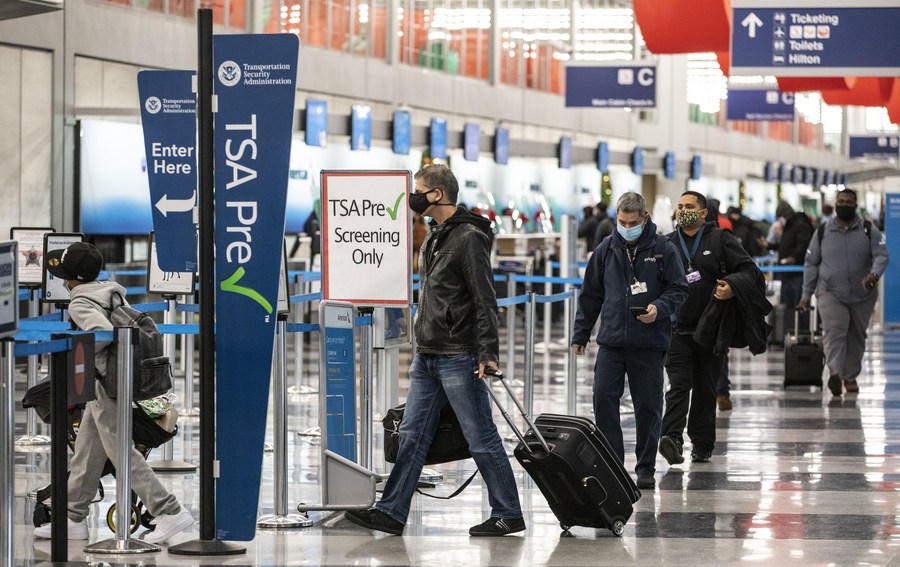
Girls put their hands together to show their bangles during one of the monitoring and evaluation exercises organized by Campaign for Health Education, Sanitation and Hygiene (CAHESH), in Chikwawa, Malawi, Nov. 25, 2020. It is estimated that a large number of girls miss classes in Malawi because of growing menstruation taboos, a non-government organization has found. (Photo by Joseph Mizere/Xinhua)
CHIKWAWA, Malawi, Nov. 26 -- It is estimated that a large number of girls miss classes in Malawi because of growing menstruation taboos, a non-government organization has found.
According to Mercy Nkhoma, Project Officer at Campaign for Health Education, Sanitation and Hygiene (CAHESH), many girls in rural areas were failing to attend classes because they had little knowledge on how they can take care of themselves during menstruation period.
Nkhoma said that the organization has been moving up and down in Phalombe and Chikwawa with messages and special skills to enhanced knowledge among girls.
"In our recent monitoring exercise and evaluation in Chikwawa, we noted that many girls especially those with impairments were having problems whenever they were experiencing their monthly period, to solve this problem, the girls were taught new and modern ways of taking care of themselves," she said.
According to Nkhoma, since the project started a few months ago, there has been a significant change in terms of perception towards issues of menstruation among girls in rural communities. However, she stressed that there is a lack of funding in order to reach more girls.
Meanwhile, Women and girls in Chikwawa have applauded the organization for coming up with the project which according to them is timely and efficient.
Mercy Chisoni, a caregiver at a local primary school in Chikwawa said that the project has helped many young girls at the school. She said that girls are now becoming open in discussing issues of mensuration with their teachers freely.
In July, the Malawi government in conjunction with CAHESH started a capacity-building project for sanitation response in special needs education, which aimed at empowering disabled girls with proper self-hygiene during the adolescent period.













